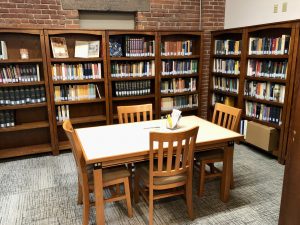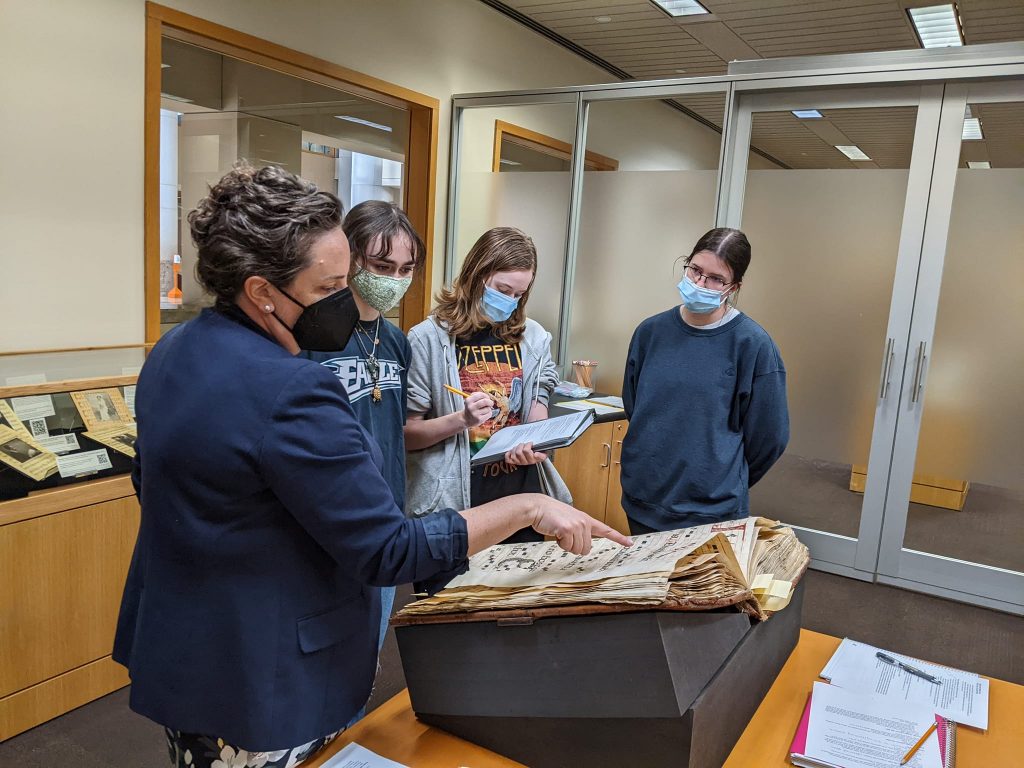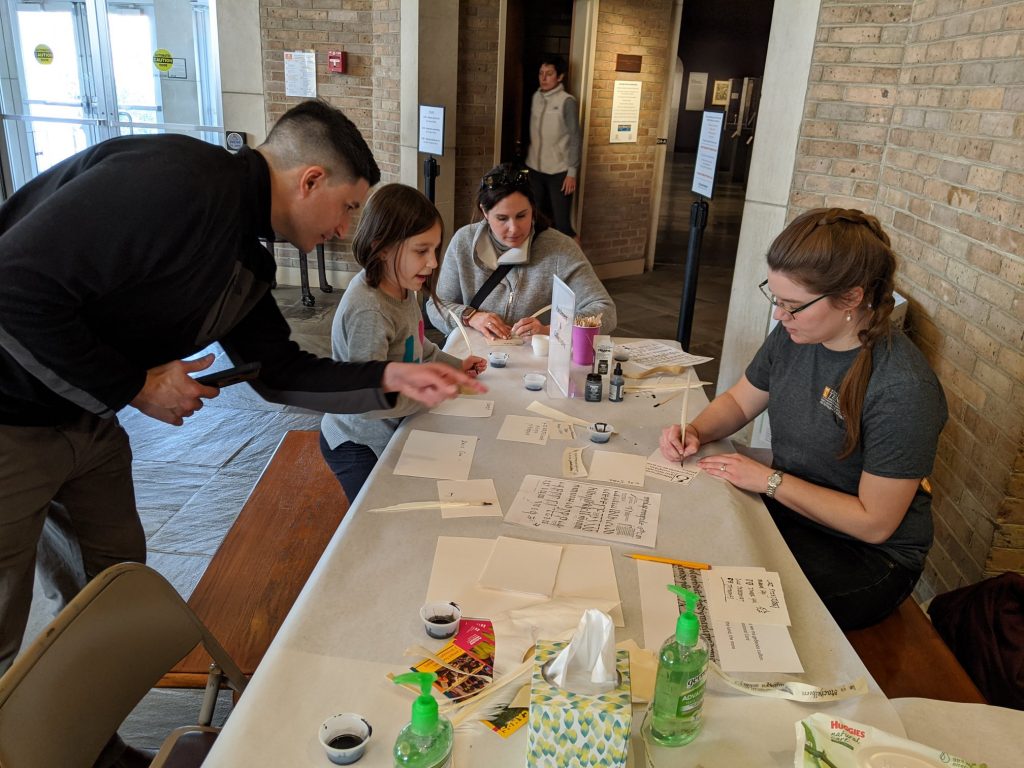The Marco Institute for Medieval and Renaissance Studies celebrated the reopening of its Riggsby Library and Reading Room in February, capping off the institute’s move to new offices at the Cherokee Mills building near the UT Knoxville campus. The space welcomes Marco graduate students, faculty, visiting fellows, and the Medieval and Renaissance Studies (MRST) community as a resource for research, events, or just to have a quiet place to work.

The Marco Institute’s Riggsby Library and Reading Room recently reopened at the Institute’s new Cherokee Mills offices.
This reference collection and gathering spot is central to the Marco mission for the study of the history and culture of the premodern world (circa 300 to 1700 CE). Its interdisciplinary approach and collaborative enterprises contribute to the intellectual life of the UT campus, the Knoxville community, and beyond.
“The mission of the Marco Institute is threefold,” said Associate Professor and Riggsby Director of Marco Anne-Helene Miller. “Marco supports research and innovation for its affiliated faculty and graduate students; pursues outreach activities, public and academic scholarship within the community and the region; and Marco faculty are involved in an interdisciplinary academic program with majors and minors at the undergraduate level and a certificate at the graduate level.”
Majors and minors in MRST through the Marco Institute experience a broad, foundational base in their college education, taught by world-renowned specialists in their fields and disciplines.
“Students have at their disposal the best resources to be successful,” said Miller. “Because they approach knowledge from different disciplines and perspectives, students acquire some of the most vital skills: how to read critically, analyze a work of art or an artifact, speak and read in more than one language, hone their writing skills, and engage in meaningful discussion with other students and specialists on a variety of topics that are important to understand today’s world.”
Lecturer Caitlin Branum Thrash enjoys helping bridge understanding for students in MRST—connecting the lessons of this historic era to modern sensibilities.
“Students often already have some interest in things like this from pop culture and fiction, so it is incredible to show them a hand-written and decorated book that is a real historical artifact,” said Thrash. “Being able to say that this object is not a prop or a fantasy, but something that a person created 500 or 700 years ago and used in their daily life never gets old for me. To show them how much we can learn just from looking at the material objects or studying the literature and language is fantastic.”

Undergraduates in Lauren Whitnah’s Medieval and Renaissance Studies course get a hands-on experience working with medieval manuscripts in the Special Collections at Hodges Library.
The broad, interdisciplinary nature of MRST ensures that there are valuable insights for a wide range of students’ interests, offering a unique edge for success in any career path.
“An MRST major or minor can be paired with any degree in the UT College of Arts and Sciences,” said Miller. “From history to political sciences, religious studies, biology, and beyond in music, architecture, etc. Several of our students are pre-law and pre-med. Students have overall been very successful, pursuing graduate degrees or entering med school or law school.”
Mackenzie King, a PhD student in history, and Kayla Shea, PhD student in English, have both experienced academic boosts from Marco resources and community.
“Most universities don’t have a dedicated medieval studies program like this, nor do they have larger cohorts of medievalist graduate students and professors,” said King. “Being able to talk about your work with others—or even to make a medieval-themed joke that no one else would understand— instead of being academically isolated is tremendously valuable. Being part of a large university, having a lounge to go to, or a place to find all the books you might need, or to work through a primary source with other medievalists has been beyond incredible.”
Shea appreciates engaging with the many interdisciplinary opportunities provided.
“Marco hosts events throughout the academic year, from guest speakers and luncheons with prominent scholars to workshops and symposia, as a way for students to hear about work on topics and themes that matter to them from multiple fields,” she said.
Events include the annual Riggsby Lecture on Medieval Mediterranean History and Culture, the Marco Manuscript Workshop, the Marco Symposium, and its Graduate Fellows Evening.
“On a simple level, medieval literature and history is just fun,” said Shea. “Medieval stories are wacky, and when non-medievalists overhear what we’re working on, they often comment that it sounds wild. There’s always something new to discover.”

Caitlin Branum Thrash teaches visitors how medieval manuscripts were written, as part of Marco’s Family Medieval Day, an outreach event hosted at McClung Museum in Spring 2020.
By: Randall Brown